Vice
Season 3
s03e01 / Our Rising Oceans
7th Mar '15 - 4:00am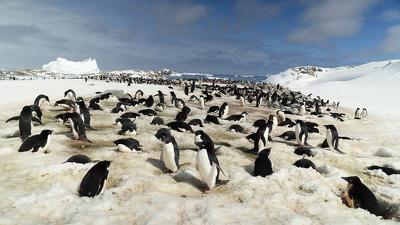
The oceans are rising. With human use of hydrocarbons skyrocketing, waters around the globe are getting hotter, and now this warm sub-surface water is washing into Antarctica's massive western glaciers, causing them to retreat and break off. Antarctica holds 90% of the world's ice and 70% of its freshwater, so if even a small fraction of the ice sheet in Antarctica melts, the resulting sea level rise will completely remap the world as we know it - and it is already happening. In the last decade, some of the most significant glaciers here have tripled their melt rate.
VICE founder Shane Smith travels to the bottom of the world to investigate the instability of the West Antarctic ice sheet and see firsthand how the continent is melting. VICE also follows the rising oceans to Bangladesh for a glimpse into the world's underwater future. From the UN Climate conference to the People's Climate March to the forces that deny the science of global climate change, this special extended report covers all sides of the issue and all corners of the globe, ending in a special interview with Vice President Joe Biden.
s03e02 / To Serve and Protect & Coming to America
14th Mar '15 - 3:00am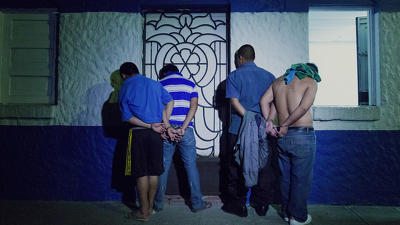
The fatal shooting of Michael Brown in Ferguson, Mo. last summer sparked a series of protests, which quickly spread throughout the country. As the situation came to light, so too did a fierce debate about the increasing militarization of the U.S. police force. Thomas Morton goes to Ferguson at the height of the protests to get an in-depth look at the situation on the ground. He then goes to Urban Shield in Oakland, Cal. and talks to expert Radley Balko to learn how U.S. SWAT teams and police are being trained and how they are getting military-grade equipment to police their communities.
Over the last two years, there has been an influx of thousands of Central Americans immigrating to the United States, many of whom are fleeing rampant gang violence in El Salvador, Honduras and Guatemala. Suroosh Alvi visits El Salvador to see the conditions that are motivating this mass migration north, and then travels from El Salvador through Mexico to see the perilous journey on top of a network of trains, called "The Beast", that many of these immigrants must take to get to the United States.
s03e03 / We The People & Countdown to Extinction
21st Mar '15 - 3:00am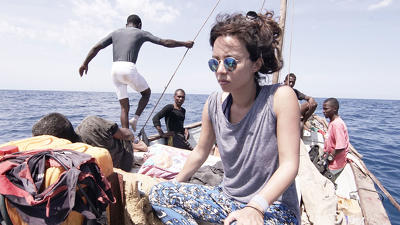
"We the People" - A recent study funded by the Department of Homeland Security listed domestic right-wing groups as two of the top three greatest terrorist threats in America. Host Gianna Toboni investigates these so-called patriots, training and taking up arms along the border.
"Countdown to Extinction" - Correspondent Isobel Yeung visits the Mozambique Channel and the Gulf of Mexico to get an idea of how much we've overfished our oceans, and what we can now do to reverse that trend.
s03e04 / Lines in the Sand & Outsourcing Embryos
28th Mar '15 - 3:00am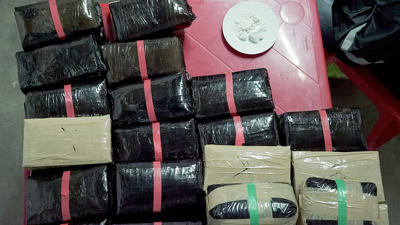
Cocaine use in Europe has increased dramatically over the past decade, and new routes have evolved to supply the demand. Ben Anderson follows the cocaine highway from the streets of Venezuela, to drug smuggling boats in the Caribbean, to the ports of West Africa, and finally to desert territories controlled by Islamic extremists. By exploring the trafficking hot spots of South America and Africa, we find out who is profiting from Europe's cocaine habit.
Outsourcing Embryos
Correspondent: Gianna Toboni
VICE looks at the boom in one of the world's newest billion-dollar industries: gestational surrogacy. The cost of surrogacy in the U.S. can be over 0,000, leading many prospective parents to look for affordable options in other countries. Gianna Toboni heads to India, where commercial surrogacy is legal, to investigate this growing industry. By exploring some of the country's 3,000 surrogacy clinics, watching doctors deliver surrogate babies, and following recruiters who find prospective surrogates in the slums, we see the true cost of outsourcing reproduction.
s03e05 / Synthetic Drug Revolution & Transsexuals of Iran
11th Apr '15 - 3:00am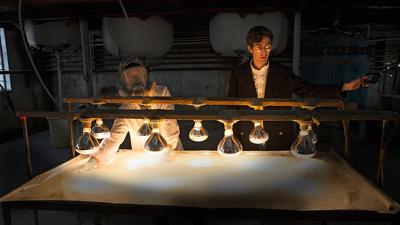
Synthetic Drug Revolution
Correspondent: Hamilton Morris
In the world of synthetic drugs, man-made chemical compounds are often engineered to skirt narcotics laws-and have become some of the most frequently abused substances in American high schools. The makers of these drugs race to keep ahead of law enforcement by making incremental changes in the compounds' molecular structure, even though the effects of those alterations can turn out to be dangerous. VICE correspondent Hamilton Morris tracks these chemicals back to the Chinese factories where many are made, and meets the godfather of modern synthetic drugs at his remote lab in New Zealand.
Transsexuals of Iran
Correspondent: Thomas Morton
VICE follows the stories of homosexuals and transsexuals in Iran as they navigate a terrifying cultural landscape. When Ayatollah Khomeini came to power in 1979, he enforced strict Islamic custom that made homosexuality punishable by passing. Surprisingly, though, the state treats transsexuals differently, allowing sexual reassignment surgery and in some cases even paying for it. But the fatwa allowing the surgery has a grim drawback: families, therapists, and the state see gender reassignment as a solution to the "illness" of homosexuality-not understanding the risks of forcing the long, life-changing process of a sex change on someone who wasn't born wanting it. Gay Iranians now face the agonizing choice of fleeing their communities or permanently changing who they are.
s03e06 / The Post-antibiotic World & Indonesia's Palm Bomb
18th Apr '15 - 3:00am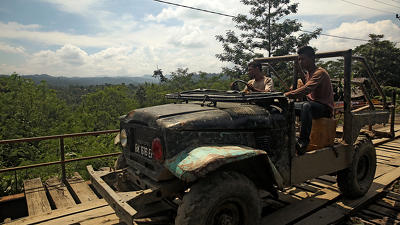
The palm oil industry in Indonesia and the search for new antibiotics.
s03e07 / Sweet Home Alabama & Haitian Money Pit
25th Apr '15 - 3:00am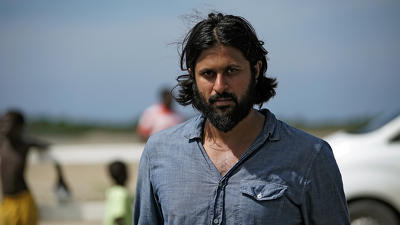
This week, we look at Alabama's anti-immigration laws, which are some of the toughest in the country. These strict laws have forced tens of thousands of immigrants to flee-and may also be doing real damage to the state's economy. In our second segment, VICE's Vikram Gandhi travels to Haiti to investigate the lingering effects of the massive earthquake that hit the country in 2010. After over billion in global relief fund donations, why are so many Haitians still living in abysmal conditions? Gandhi sets off through Port-au-Prince to follow the trail of money and find out.
s03e08 / Egyptian Tomb Raiders & Rent a White Guy
2nd May '15 - 3:00am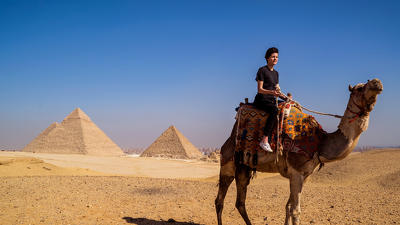
Gianna Toboni investigates who's behind the looting of antiquities in the Middle East in the aftermath of the Arab Spring; Thomas Morton reports on the popularity of Western white males in China.
s03e09 / Savior Seeds & India's Water Crisis
9th May '15 - 3:00am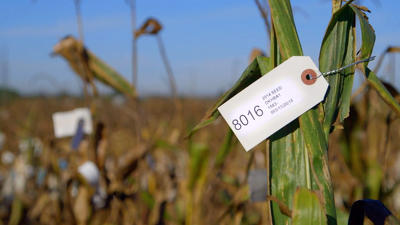
The future of food and genetically modified organisms. India's shortage of clean water.
s03e10 / A Prayer for Uganda & Kidneyville
16th May '15 - 3:00am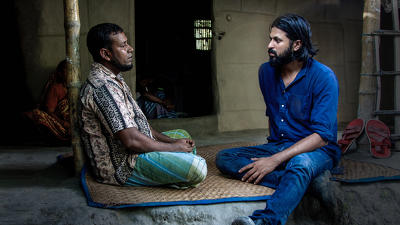
Anti-gay leaders teach intolerance to Uganda's youth. The illegal market for kidneys in Bangladesh.
s03e11 / Evolution of a Plague & Campus Coverup
6th Jun '15 - 3:00am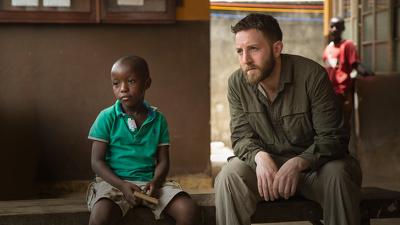
Evolution of a Plague - Last year the worst Ebola outbreak in human history swept through West Africa, hugging more than 10,000 in Liberia, Sierra Leone and Guinea. The disease spread so quickly in part because the international community was slow to respond, and also because these countries lacked infrastructure, funding and street-level awareness to combat the virus. Danny Gold goes to West Africa to see how people there have stepped up to control the outbreak, and to learn whether the world is prepared for the next major epidemic.
Campus Coverup - Media reports of sexual assaults on U.S. campuses have risen dramatically over the last few years. More and more survivors and their allies are coming forward to denounce a pervasive culture of sexual violence they say is out of control.
s03e12 / Enemies at the Gates & Global Jihad
13th Jun '15 - 3:00am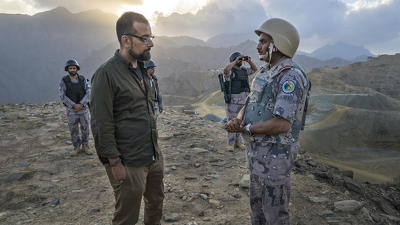
Suroosh Alvi travels to Saudi Arabia to see how America's staunchest Arab ally is defending itself - and how it may be fanning the flames of global militancy. Gianna Toboni travels to Europe to meet some of the young men drawn to ISIS's call, and visits with American Navy strike pilots working to roll back the Islamic State's gains.
s03e13 / Afghanistan After Us & La Haine
20th Jun '15 - 3:00am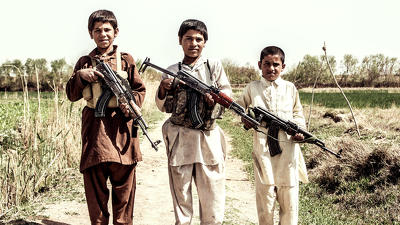
Ben Anderson returns to Helmand, the country'smost unhappy province, to investigate the security situation in Afghanistan as American involvement winds down. Vikram Gandhi goes to Paris to gauge the causes of the growing hate in the City of Lights.
s03e14 / Cold War 2.0
27th Jun '15 - 3:00am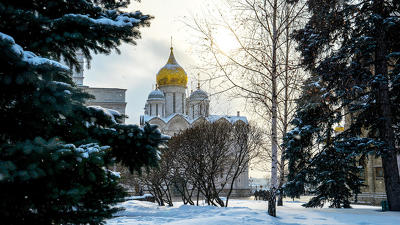
The increasingly strained relationship between Russia and NATO is examined in the Season 3 finale, which includes remarks by U.S. president Barack Obama and vice president Joe Biden.